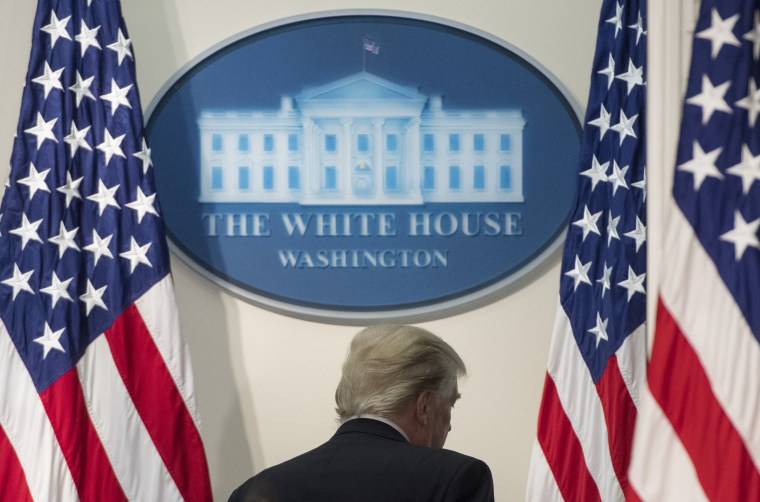When Donald Trump announced plans on Dec. 19 for a precipitous withdrawal of U.S. forces from Syria, it jolted the political world and sparked some high-profile resignations from the president's national security team. Indeed, Trump's decision was at odds with the advice of his own administration, prompting Defense Secretary James Mattis and Brett McGurk, the U.S. special envoy for the coalition to defeat ISIS, among others, to resign in protest.
Four days later, acting White House Chief of Staff Mick Mulvaney said that the president would not change his mind about his withdrawal plan, even after the resignations.
Oops.
The Trump administration won't withdraw forces from northern Syria unless Turkey offers a firm commitment not to target the U.S.'s Kurdish allies, White House national security adviser John Bolton said Sunday.President Trump's order to withdraw U.S. troops is a "cause-and-effect mission" that requires certain assurances from various players in the region before it can be executed, said Mr. Bolton, the first administration official to outline the conditions for withdrawal.
While it's true that the president and top members of his team have routinely articulated completely different policies, in this case, Trump appears to be on board with an entirely new policy toward Syria. "We're pulling out of Syria," he said yesterday, "but ... we won't be finally pulled out until ISIS is gone."
Oh. So, 19 days ago, Trump told the world the United States is withdrawing "now," in large part because ISIS has been defeated. The president ordered the Pentagon to begin a 30-day drawdown. It was 12 days ago when Trump boasted that if U.S. military leaders requested more time, he'd say no.
And yet, here we are. It took less than three weeks for the Republican to reject and overhaul his own policy. We're no longer withdrawing "now"; we no longer think ISIS has been defeated; and Trump is pretending he never actually ordered the 30-day drawdown.
"We're going to be removing our troops; I never said we're doing it that quickly," the president told reporters yesterday, apparently unaware that he promised the American public a few weeks ago, "You're going to see them soon ... our boys, our young women, our men, they're all coming back. And they are coming back now."
There's an important larger debate, of course, about the underlying merits -- or lack thereof -- of the U.S. military deployments in Syria. But as important as that argument is, for now, it's hard not to marvel at the way in which Trump has tried to make a major policy decision on the fly, without any real scrutiny, and without any meaningful consideration of the substantive details or consequences of a meandering "plan."
In a normal administration, the president would announce a new foreign policy toward a nation like Syria after a detailed policy analysis. The relevant questions -- about ISIS, about Kurdish allies, about Turkey's intervention, about the effects on countries like Iran and Russia -- would be addressed in detail as part of a multi-agency review before any decisions were made and before the administration made any announcements to the public.
But this is a decidedly abnormal White House. It's one in which a hapless amateur published an impetuous tweet, announced a precipitous withdrawal of American troops, lost top members of his national security team, boasted that he would defiantly ignore his critics, and then settled on largely the opposite policy, all over the course of 19 days.
The result is a case study in post-policy governance.
